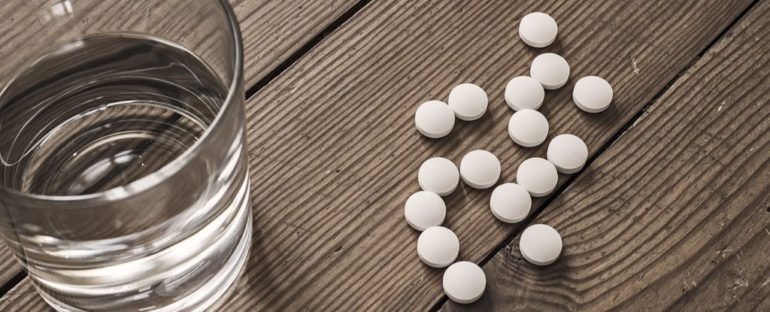Westmead Hospital in Australia says it has treated a patient who overdosed after taking the drug ivermectin, an unproven and potentially dangerous treatment for COVID-19.
The person went to hospital seeking treatment for diarrhea and vomiting side-effects, after taking the drug, which is usually used to treat parasites. The person had ordered this and other unproven COVID “cures” online.
A COVID-positive person is recovering at home after presenting to Westmead Hospital’s ED with vomiting and diarrhoea recently – not due to COVID but from an overdose of the drug ivermectin and other supposed COVID “cures” they ordered online.https://t.co/Qrh8R0XnCE
— Western Sydney Health (@WestSydHealth) September 1, 2021
While the patient did not die, health authorities are concerned at the number of people taking ivermectin, and warn against it for anyone else who may have COVID symptoms or has been diagnosed with the virus.
Other known ivermectin side-effects range from mild to the life-threatening, including seizures and coma.
Why are people taking it?
Ever since researchers showed ivermectin could kill SARS-CoV-2 (the virus that causes COVID-19) in the laboratory, there has been interest in whether the drug would also work to kill the virus in the human body.
So far, there is no clinical evidence it works to treat or prevent COVID-19. And there is widespread consensus people should not take ivermectin at home for COVID-19.
Organizations that recommend against it include: the World Health Organization, Australia’s National COVID-19 Clinical Evidence Taskforce and NPS Medicinewise, the United State’s Food and Drug Administration, and the Cochrane Library.
How are people getting hold of it?
Despite this, community pharmacists have reported increased demand for ivermectin, with people seeking the drug as a possible COVID treatment.
In Australia, ivermectin is approved to treat parasite infections in humans. It’s also widely used in veterinary medicine to treat and prevent parasite infections.
However, as a prescription-only human medicine (known as schedule 4), you can only access ivermectin legally in Australia after approval from a doctor.
This is because, like all medicines, ivermectin is not 100 percent safe. It does have possible harmful side-effects and a doctor’s judgement is necessary to decide if ivermectin is safe and appropriate for each patient.
So ivermectin is currently only recommended to treat and prevent COVID-19 when used as part of a clinical trial, where patients can be more safely selected and carefully monitored.
The State Veterinarian’s Office wants to alert consumers to an advisory from the CDC regarding human use of veterinary ivermectin products to prevent or treat COVID-19. https://t.co/Iwfo9BqnPe pic.twitter.com/wrM7VKZK3T
— TN Dept. of Ag (@TNAgriculture) August 31, 2021
As well as more patients presenting to pharmacies with scripts, the Australian Therapeutic Goods Administration warns about the danger of importing ivermectin products of unknown quality, bought over the internet.
This is risky because products may not contain the stated drug, may contain dangerous contaminants or much more of the drug than thought, which may result in an overdose.
Of most concern are reports from Australia and overseas of people buying and taking ivermectin products intended for animal use. People may be resorting to these types of products where they have been unable to access a script for human formulations of ivermectin.
What does it do to your body?
We know very little about what the drug does to humans, and the little we do know mostly comes from its use in animals.
When taken at the recommended dose, the drug is generally well tolerated. But ivermectin is known to cause mild side-effects such as diarrhea, nausea, dizziness and sleepiness. Less common, but serious, side-effects include severe skin rashes and effects on the nervous system (causing tremor, confusion and drowsiness).
In higher doses, and overdose cases, these side-effects can be more severe. These include low blood pressure, problems with balance, seizures, liver injury, and it can even induce comas.
The take-home message
The public is understandably interested in medicines to treat and prevent COVID-19. However, misinformation about ivermectin and others continues to circulate.
COVID-19 vaccination remains the best way to reduce the risk of serious illness and death from COVID-19. Australia’s National COVID-19 Clinical Evidence Taskforce provides the most up-to-date information about COVID-19 treatments and is a reliable source of information as new knowledge emerges.
If you or a family member take ivermectin and have strong side-effects you should seek immediate medical advice.
Nial Wheate, Associate Professor of the Sydney Pharmacy School, University of Sydney; Andrew McLachlan, Head of School and Dean of Pharmacy, University of Sydney, and Slade Matthews, Senior Lecturer, University of Sydney.
This article is republished from The Conversation under a Creative Commons license. Read the original article.



